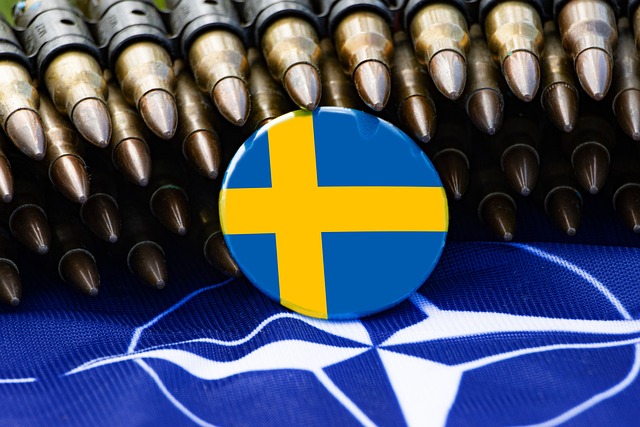By İLTER TURAN
NATO’a Vilnius Summit is finally behind us. Everyone had waited with suspense as regards what Türkiye would to regarding Sweden’s bid for membership. Sweden had moved ahead on the legal front to bring under control terrorists that had found a haven in Sweden to plan and finance their activities against Türkiye. Türkiye, on the other hand, had pointed out that not enough had yet been done to persuade it that the legal changes would be followed by serious implementation efforts. In view of the fact that Sweden had tried to dismiss Turkish concerns by saying that it had lived up to its promises, Türkiye’s concerns may be justified. Some steps in implementation had indeed been taken, but it was too soon to tell if Sweden had affected fundamental changes in its previously terror friendly policies. In this context, the change in Türkiye’s position and its acceptance of sending Sweden’s application on to the Turkish parliament for approval proved to be a pleasant surprise not only for Sweden but for also many NATO members headed by the US that it should join the alliance as soon as possible to complete the formation of a united front in the Baltic against Russia, the aggressor in the Ukraine.

Türkiye’s surprise shift in position appears to have been shaped by a complex set of linkages among several concerns of Turkish foreign policy, not all of them even linked to NATO or questions of security. A primary factor shaping the change appears to have been Mr. Erdoğan’s meeting with President Biden that lasted considerably longer than initially planned. For Mr. Erdoğan who sees international politics as personal linkages between world leaders, the meeting with Mr. Biden that he had been craving for, was an achievement in itself. But more importantly, a trade-off appears to have been affected between presumably two unrelated areas, Swedish membership in NATO and the sale of refurbishing kits and new F-16s to Türkiye. Mr. Biden has now achieved a stronger position to persuade Congress to approve the sale. Mr. Erdoğan is likely to await the finalization of the F-16 sale decision before he asks the Turkish parliament to suppport Sweden’s bid. It so happens that the Turkish legislature will soon go on vacation and will not meet until October. It is unlikely Sweden’s bid can be processed within such limited time. This gives enough time to the American government to decide on the F-16 sale.
Another factor in Türkiye’s decision was linked with Türkiye’s relationship with the EU. All actors other than Türkiye were quick to point out that NATO and the EU were two different organizations and the relationship of a country with one should not be confused with its relations with the other. In the final hour negotiations, Türkiye asked Sweden to extend its full support to Türkiye’s stalling bid for membership in the EU. Sweden has generally been supportive of Türkiye or at least, it is not the main stumbling block to Türkiye’s EU aspirations. It seems that there would not be much benefit from extracting a promise from Sweden to back Türkiye. Why then bring up the EU into the discussion? It seems that a reconsideration process within the EU as regards how to shape a working partnership with Türkiye has commenced. Many members are concerned that Türkiye is moving away from the EU, judging that it is too important economically and security-wise to sever its linkages with Europe. While its authoritarian political system would not make it a candidate for membership, a status that some key members do not view with favor anyhow, means to retain the long prevailing close relationship need to be developed. Two problems areas of immediate relevance are a revision of the Customs Union Treaty and the liberalization of the visa regime. It would not be surprising if Sweden’s NATO adventure serves as a triggering event for the EU to address problems in these areas and re-enliven the sagging Türkiye-EU relationship.
Is the Swedish membership a done deal? I all likelihood yes, but I would caution that failure to move on terror, to conclude the sale of F-16s or the problem areas with the EU would all provide reasons for the Turkish legislature not to approve of the government’s recommendation. When dealing with Erdoğan government, a word of caution is always in order.
Furthermore, Türkiye’s Swedish opening does not constitute sufficient evidence that it is returning to its fundamentally pro-Western policy. Over the recent years, Türkiye has developed substantial economic relations with Russia and tried to develop delicate balance in the field of security. This relationship has served the interests of both parties. Türkiye will work hard to retain it. Russia is cognizant that Türkiye is a member of NATO and that it has close relations with the EU. It wants to make sure, however, that Türkiye will not serve as the Southern base of Western encirclement and that it will continue to be a reliable economic partner. Türkiye will not place premises of this policy under threat.
By İLTER TURAN
